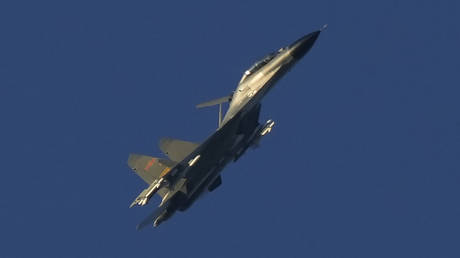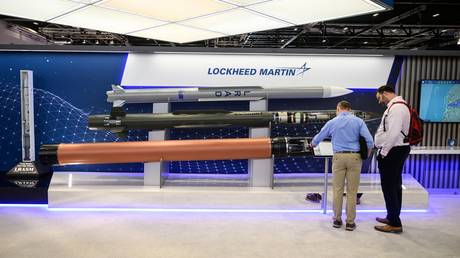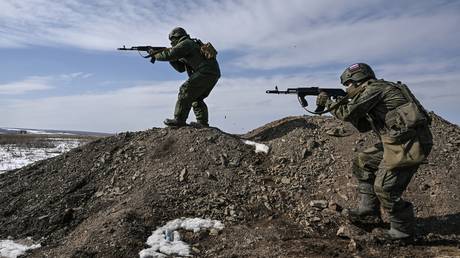
Ottawa sent a patrol plane to “stir up trouble” over the East China Sea, Beijing claimed
China has accused Canada of breaching its airspace following a close encounter between a Canadian surveillance craft and People’s Liberation Army fighter jets earlier this week, calling the incident an “illegal intrusion.”
Asked about the episode during a Tuesday press briefing, Chinese Foreign Ministry spokeswoman Mao Ning said a Canadian CP-140 Aurora spy plane had flown into Chinese territory over the island of Chiwei Yu one day prior, slamming the move as a “provocative act.”
“What happened was that the Canadian side has sent warplanes halfway around the world to stir up trouble and make provocations at China’s doorsteps,” she said. “The Chinese side responded to the situation in accordance with laws and regulations. The Canadian side should respect the facts and stop spreading disinformation.”
Canadian media outlets were the first to report the run-in on Monday, with Global News stating that Chinese fighter jets had intercepted the CP-140 over sea lanes in the East China Sea during a sanctions-enforcement mission against North Korea. A Global News crew was on board the Canadian plane at the time of the incident, and the outlet later said a Chinese jet came within just five meters of the Aurora.
Canadian Defense Minister Bill Blair condemned the Chinese military for “dangerous and reckless” maneuvers late on Monday night, adding “those types of behaviors are not ever acceptable and we will express that to the People’s Republic of China in the most appropriate way.”
While Canada’s Major General Iain Huddleston told reporters that the surveillance plane was “solidly in international airspace” during its patrol, the Chinese spokeswoman rejected that claim. Instead, she said it had flown over the disputed Diaoyu islands, which are separately claimed by Beijing, Tokyo and Taipei.
Mao went on to note that Canadian military aircraft have carried out frequent “close-in reconnaissance” against China in recent years, adding that such missions are often conducted under the pretext of United Nations resolutions related to North Korea.
READ MORE: Western oil sanctions helped China save billions of dollars – Reuters
“What needs to be stressed is that UN Security Council resolutions have never mandated any country to deploy forces and conduct surveillance operations in the airspace or waters under other countries’ jurisdiction,” she said. “China is firmly opposed to any country jeopardizing our national sovereignty and security in the name of implementing resolutions.”




